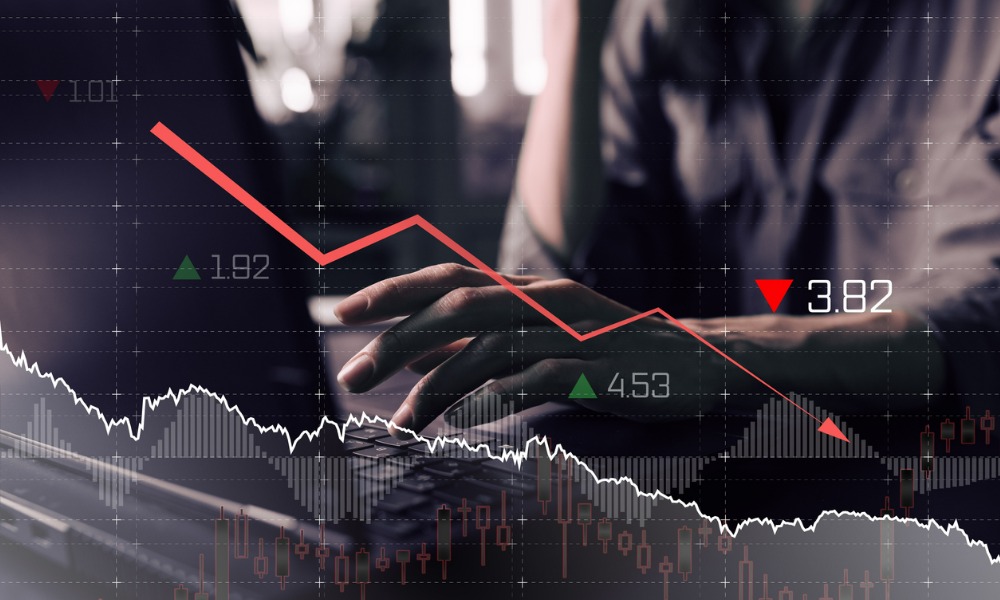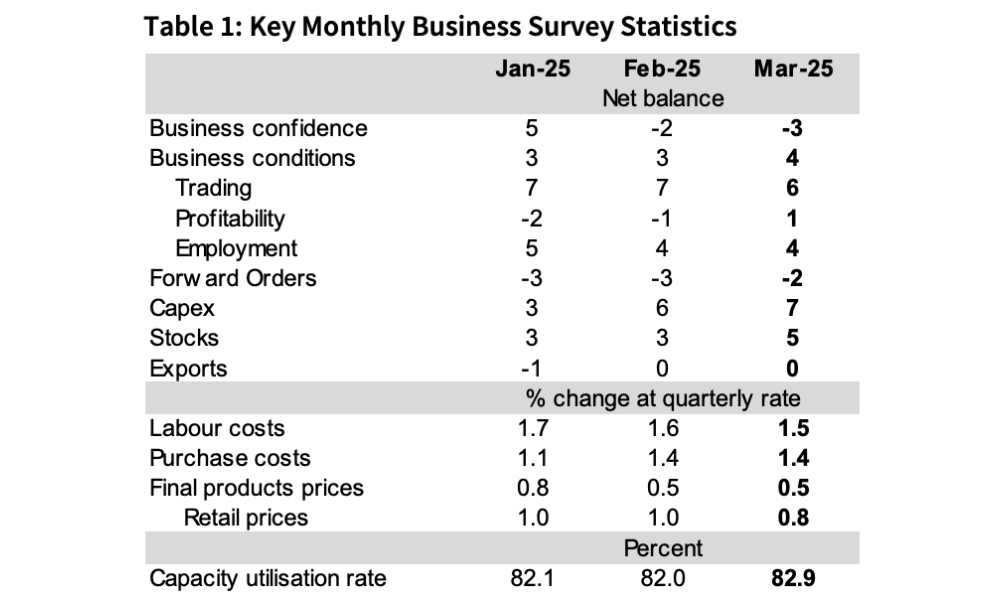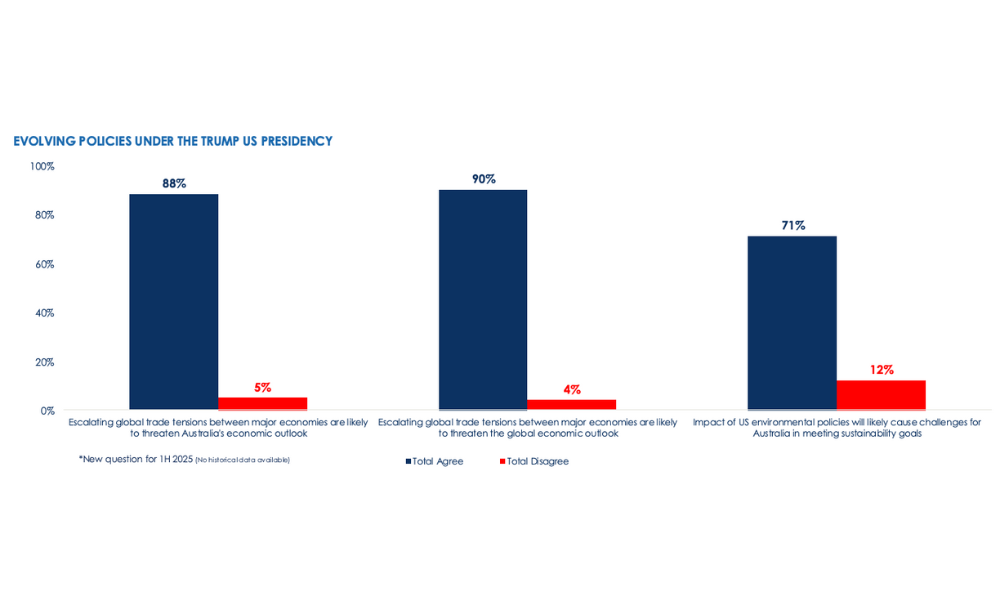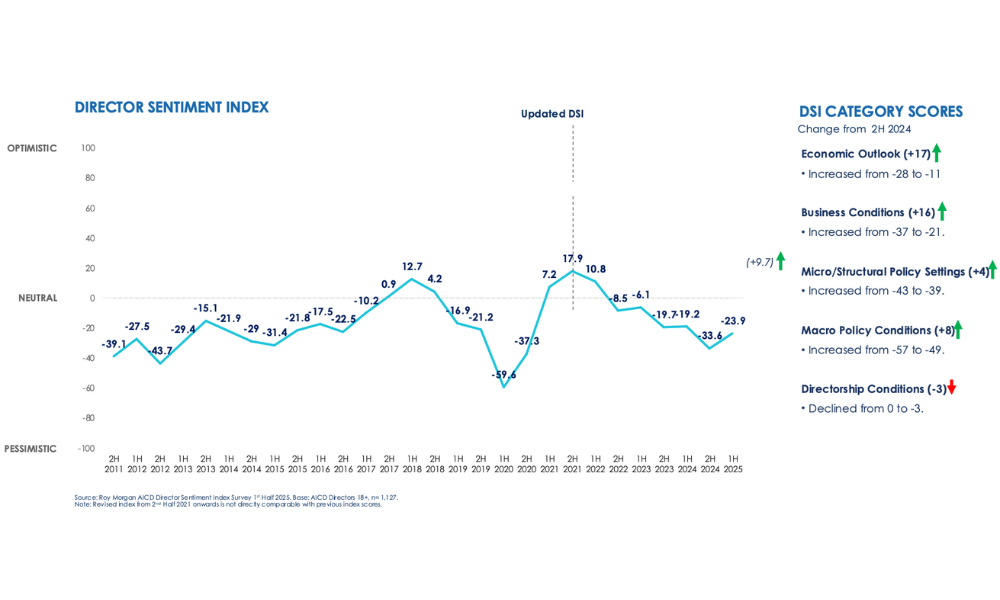
Which sectors are seeing the biggest declines in business confidence?

Business conditions across Australia remained "largely unchanged" for the month of March, but directors are showing signs of concern over escalating trade tensions stemming from the United States.
Findings from the National Australia Bank (NAB) showed that business confidence fell one point in March to remain in negative territory.
"Confidence by industry was mixed, with declines in finance, property and business services, manufacturing, wholesale and construction, while mining, retail, rec and personal and transport increased," the report read.
The slight decrease comes despite business conditions remaining broadly flat at +4 index points, with improvement in the profitability component mostly offset by easing trading conditions and employment.

"Businesses remain cautious about the outlook, with confidence and conditions both below average," said Sally Auld, NAB chief economist, in a statement.
But Auld noted that NAB carried out the survey before US President Donald Trump announced reciprocal tariff earlier this month.
"We will be looking to see how recent tariff announcements flow through to business sentiment in upcoming surveys," the chief economist said.
Trump's reciprocal tariff policies were imposed earlier this month on goods imported from the rest of the world.
"Australia was one of the 'lucky' countries, hit with only the 10% baseline tariff on our exports to the US (outside of aluminium and steel)," said the NAB Group Economics on its website.
Prime Minister Anthony Albanese said the tariffs imposed by Trump were "totally unwarranted."
"President Trump referred to 'reciprocal' tariffs. Australia does not impose tariffs on the United States. A reciprocal tariff would be zero," Albanese said in a statement. "The Administration's tariffs have no basis in logic - and they go against the basis of our two nations' partnership. This is not the act of a friend."
The prime minister said Australia will not be imposing reciprocal tariffs, while underscoring his commitment to the country.
"We will not join a race to the bottom that leads to higher prices and slower growth. We will stand up for Australia," he said. "We will continue to make the strongest case for these unjustified tariffs to be removed from our exporters."
Despite Albanese's assurance, the confidence of business directors stayed negative at -23.9 amid global economic uncertainty, according to the latest Director Sentiment Index Survey.
The survey, from the Australian Institute of Company Directors (AICD), found that nine out of 10 directors believe escalating trade tensions threaten the global economic outlook for both Australia and the world.

Source: Director Sentiment Index Survey
In fact, the report found that global economic uncertainty is the most-cited economic challenge for business firms, with 37%. This is followed by:
Productivity growth (34%)
Cost of living (32%)
Regulation requirements (25%)
Labour shortages (22%)
Energy policy (22%)
Despite remaining in negative territory, overall index director sentiments improved for the first time since 2021.

Source: Director Sentiment Index Survey
According to the report, this is a sign of early recovery after "several years of persistent declines."
"There are early signs of recovery in the Australian economy, but these have been moderated by developments in the world economy and increasing concerns over a global trade war," the report read.